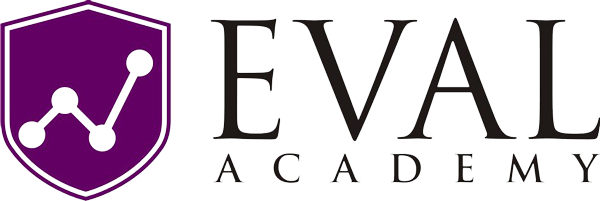What I Look for When Hiring a New Evaluator
This article is rated as:
Early in your career, it can be hard to know what field you want to work in, let alone feel confident in finding a job. If you’re thinking that you might want to become an evaluator, or you’re a newish evaluator looking for a job, read on to see what I look for when I’m hiring.
I lead Three Hive Consulting, a small evaluation consulting firm based in Alberta, Canada. As a small business owner, hiring a new team member requires a significant amount of my time, so I need to know that I’m finding the person with the best fit. I haven’t always gotten it right – reflecting on what didn’t work, in combination with what did, has led me to a place where I feel confident making some suggestions for evaluation job seekers.
Passion for Evaluation
Maybe “passion” is a bit strong, but most important to me is that our candidate wants to be in evaluation. They’re not looking for an academic career or a research position – they want to do real-world evaluation, serving communities and programs directly rather than building up their list of publications. I’m looking to see that the candidate knows what evaluation is, how it’s different from other knowledge-generating practices, and that they believe evaluation is the best fit for them. I love to hear about how people discovered evaluation, and what draws them to it. A certificate or other professional development is a great supplement for those without evaluation degrees – that extra training shows me you want to pursue evaluation.
2. Versatility in Methods
Evaluation requires holistic thinking. We need numbers and stories, science and art. I definitely hire folks who are more specialized in qual over quant, or prefer statistics to thematic analysis, but an evaluator needs to understand that both are vital to our work. Even though our team includes quantitative analysts, our evaluators in a more generalist role need to be able to bring quant and qual together. So, when I’m reading a cover letter (I won’t hire anybody without one), I’m looking for an appreciation of the complexity of evaluation methods and evidence of education or experience in both qualitative and quantitative techniques.
3. An Adventurous Spirit: Willingness to Try New Things
Our work is in projects, and every project is different. I look for candidates who are excited by new opportunities and challenges, and who want to stretch their skills. Evaluation is an ever-changing field, and my team needs to be ready to embrace new things and explore what can work in a new situation. I want to hire a candidate who likes to learn and is comfortable getting into spaces where failure is a real possibility.
4. Team Player Mentality: Embracing Everyone's Strengths
Three Hive is all about collaboration, so I’m on the lookout for team players. One of the things I love about evaluation is that people have come to the field from so many backgrounds; in our team, we have folks with degrees in public health, business, education, psychiatry, anthropology, and biological sciences. Adding to those academic backgrounds are our different experiences and aptitudes, things like project management, facilitation, and design. If our team members don’t seek out their colleagues’ strengths, that’s wasted talent. So, I look for a candidate who wants to learn from their team members, who respects and seeks out advice from different perspectives, and who can carve out a complementary role for themselves.
5. Values Alignment
Our company operates, hires, and fires based on our core values. It’s imperative to me that I can see our values reflected in a candidate’s cover letter. Every organization operates differently, and I hire people who want to work with us in a good way – they don’t just want a job, they want a job with us, and they want to live those values. I don’t think that’s asking too much, and I don’t think people last very long in an environment of mismatched values.
6. Demonstrating Evaluative Thinking
Evaluation is more than a basket of skills. Evaluation is about thinking. I look for candidates who showcase their ability to approach problems critically, analyze situations strategically, and demonstrate evaluative thinking. I like to see how the candidate has brought evaluative thinking to their life and work – if you’re inclined to think deeply about complex situations and consider multiple sources of evidence, you might just make a good evaluator. You don’t need to have had “evaluation” in your previous job title if you can show how you’ve brought evaluative thinking to your roles. Let me see how you’ve questioned assumptions, considered perspectives, and adapted your approach based on feedback.
7. Good Writing
Evaluation is so often about communication. Most of our deliverables are written products, and we want them to be engaging, compelling, and persuasive. When I see a cover letter with big walls of text, or sentences that are poorly constructed, I don’t want to keep reading – and I certainly don’t want the writer to contribute to our client-facing products. I want to see that you can craft a strong argument, so in your cover letter, tell me why you’d make a good evaluator at my company. Like I mentioned before, I don’t interview a candidate without a cover letter; that letter is their chance to demonstrate a key skill for evaluators.



